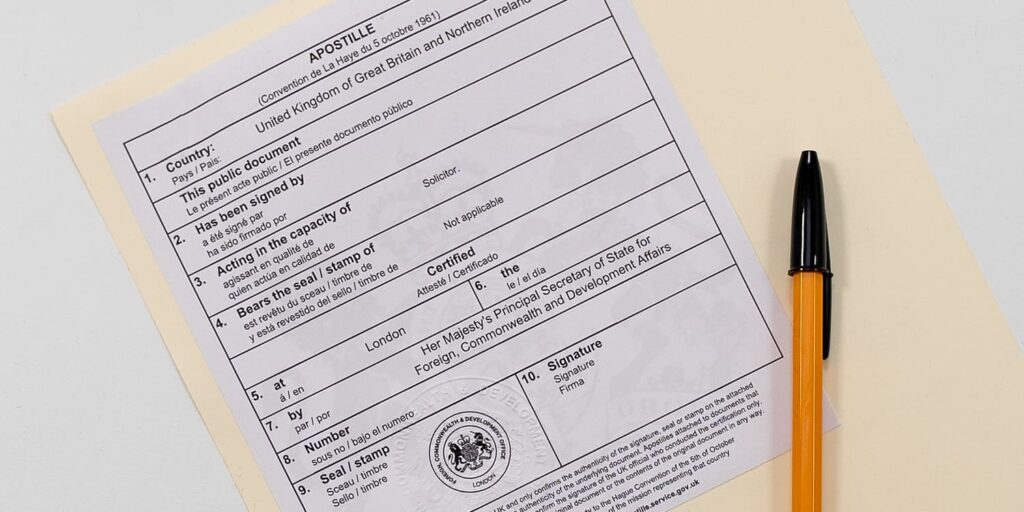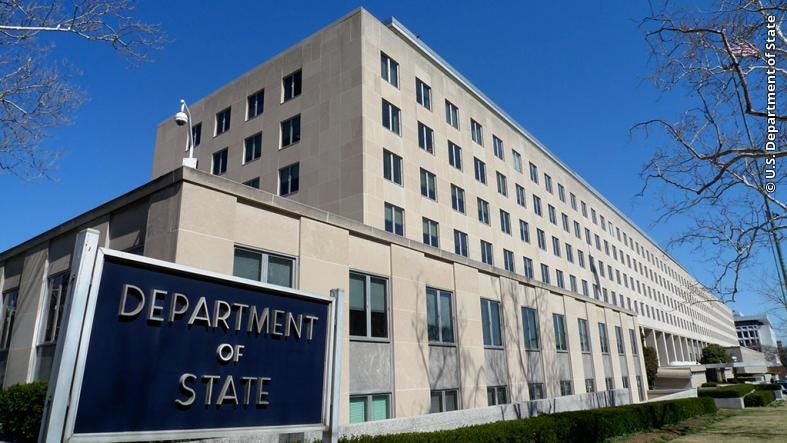What is an apostille document? Do you know what it is used for?
In today’s globalized world, the need for international document verification is paramount. Whether for personal, professional, or legal purposes, ensuring the authenticity of official documents across borders is crucial. One method used extensively for this purpose is the apostille – a term that may seem unfamiliar to many but holds significant importance in international transactions and legal processes.
Today, we’ll go over what is an apostille document, explaining its advantages and general processing.
Read as well: What is power of attorney?
What is an apostille document?
An apostille is a form of authentication or certification used to validate the legitimacy of a public document for international use. This process is particularly vital when dealing with documents like birth certificates, marriage licenses, academic transcripts, and legal agreements in foreign countries. The apostille certifies the authenticity of the document’s origin and the signature of the person who issued it, ensuring its acceptance by authorities in another country.
The concept of the apostille originated from the 1961 Hague Convention Abolishing the Requirement of Legalization for Foreign Public Documents. This international treaty aimed to simplify the process of certifying documents for international use among participating countries. As of October 15, 1981, the United States became a member of this convention, streamlining the authentication process for American documents intended for use abroad.

Advantages of apostille certification
More important than to understand what is an apostille document is to understand the advantages of it. For individuals seeking to study, work, or engage in legal proceedings abroad, obtaining an apostille certification on their documents is imperative. Similarly, it is a crucial requirement for immigration purposes. The apostille process significantly simplifies the utilization of documents in foreign countries, minimizing associated risks.
In essence, apostilles streamline international communication and collaboration, offering a valuable service. They prove particularly beneficial for individuals and organizations requiring the transmission of official documents to foreign jurisdictions. Emphasizing the importance of understanding and adhering to the apostille process is essential to mitigate potential issues and ensure smooth transactions.
The Hague Convention for the apostille process
Under the Hague Convention, participating countries agree to recognize public documents issued by other signatory countries if they bear an apostille. This apostille, often in the form of a stamp or certificate, signifies that the document is legitimate and requires no further legalization for acceptance in another member state. It effectively eliminates the need for lengthy diplomatic or consular procedures, saving time and resources for individuals and organizations seeking international document authentication.
The scope of the Hague Convention extends to various types of public documents, including notarized agreements, court orders, official transcripts, and certificates of incorporation. By adhering to the apostille process, countries uphold the principle of “full faith and credit,” acknowledging the validity of each other’s official documents without the need for extensive scrutiny or verification.
Apostilles x Certifications
By now, we are confident you know what is an apostille document. But do you know what is the difference between those and a certification? While apostilles and certifications serve similar purposes in authenticating documents for international use, there are key distinctions between the two.
Apostilles are exclusively issued for countries that are signatories to the Hague Convention, streamlining the authentication process by eliminating the need for additional legalization steps. In contrast, certifications are employed for documents intended for use in non-signatory countries, often requiring further diplomatic or consular validation before acceptance.
Apostilles and certifications may differ in appearance and application, but both attest to the authenticity of the document and the authority of the signer. Whether an apostille or certification is required depends on the destination country’s status concerning the Hague Convention and its specific requirements for document authentication.

The role of the U.S. Department of State
In the United States, the Department of State plays a central role in the apostille and certification process. When authenticating documents for international use, the Department verifies the authority of the signer and affixes the appropriate apostille or certification based on the destination country’s requirements. This ensures that American documents are recognized and accepted abroad, facilitating seamless transactions and legal proceedings across borders.
Practical considerations and procedures
In Pennsylvania, apostilles and certifications issued by the Secretary of the Commonwealth are attached to documents using a standardized procedure. Unlike some jurisdictions that permit various methods of attachment, Pennsylvania law mandates the use of staples exclusively. This ensures consistency and compliance with international standards, as endorsed by the Hague Conference on Private International Law.
It is essential for individuals and organizations seeking document authentication to communicate their intended use and destination country to the issuing authority. Failure to specify the purpose and destination of the documents may result in delays or incorrect processing, hindering the timely completion of international transactions or legal proceedings.
Can a notary authorize an apostille document?
One common question that arises in the context of apostille documents is whether a notary can authorize such a document. The answer depends on the specific requirements of the destination country and the type of document involved. In many cases, a notary’s signature alone may not suffice for apostille authentication.
While notaries play a crucial role in certifying the authenticity of signatures and documents, their authority is often limited to the jurisdiction in which they operate. The Hague Convention requires that apostilles be affixed by designated competent authorities within each member state. In the United States, this responsibility typically falls to the Secretary of State or a similar government agency authorized to issue apostilles.
However, it’s essential to note that notaries can still play a valuable role in the apostille process. They may be required to notarize certain documents before they can be submitted for apostille authentication. This notarization serves as an additional layer of verification, confirming the identity of the signer and the authenticity of the document itself.
Ultimately, whether a notary’s involvement is necessary for an apostille document depends on the specific requirements of the destination country and the nature of the document being authenticated. In cases where notarization is required, it’s crucial to ensure that the notary’s signature and seal comply with the relevant legal standards to facilitate the apostille process smoothly.

What is an apostille document: conclusion
In conclusion, apostille documents play a crucial role in facilitating international communication, commerce, and legal cooperation. By certifying the authenticity of public documents and signatures, apostilles uphold the principles of trust and recognition among participating countries.
Understanding what is an apostille document, its significance, and the associated legal requirements is essential for individuals and organizations engaged in cross-border activities. With proper knowledge and adherence to established procedures, the apostille system ensures the seamless exchange of information and documentation in an increasingly interconnected world!
Take advantage of our convenient Mobile Notary services in Orlando and Central Florida. Whether you require notarization at home, the office, the hospital, the local coffee shop, or the nursing home, we’ll come to you! Our expertise extends beyond regular notary services – as Notary Signing Agents, we’re specially trained to assist with mortgage closings as well.
Don’t let the hassle of finding a notary disrupt your schedule. Contact us today for efficient and reliable mobile notary services tailored to your needs!






